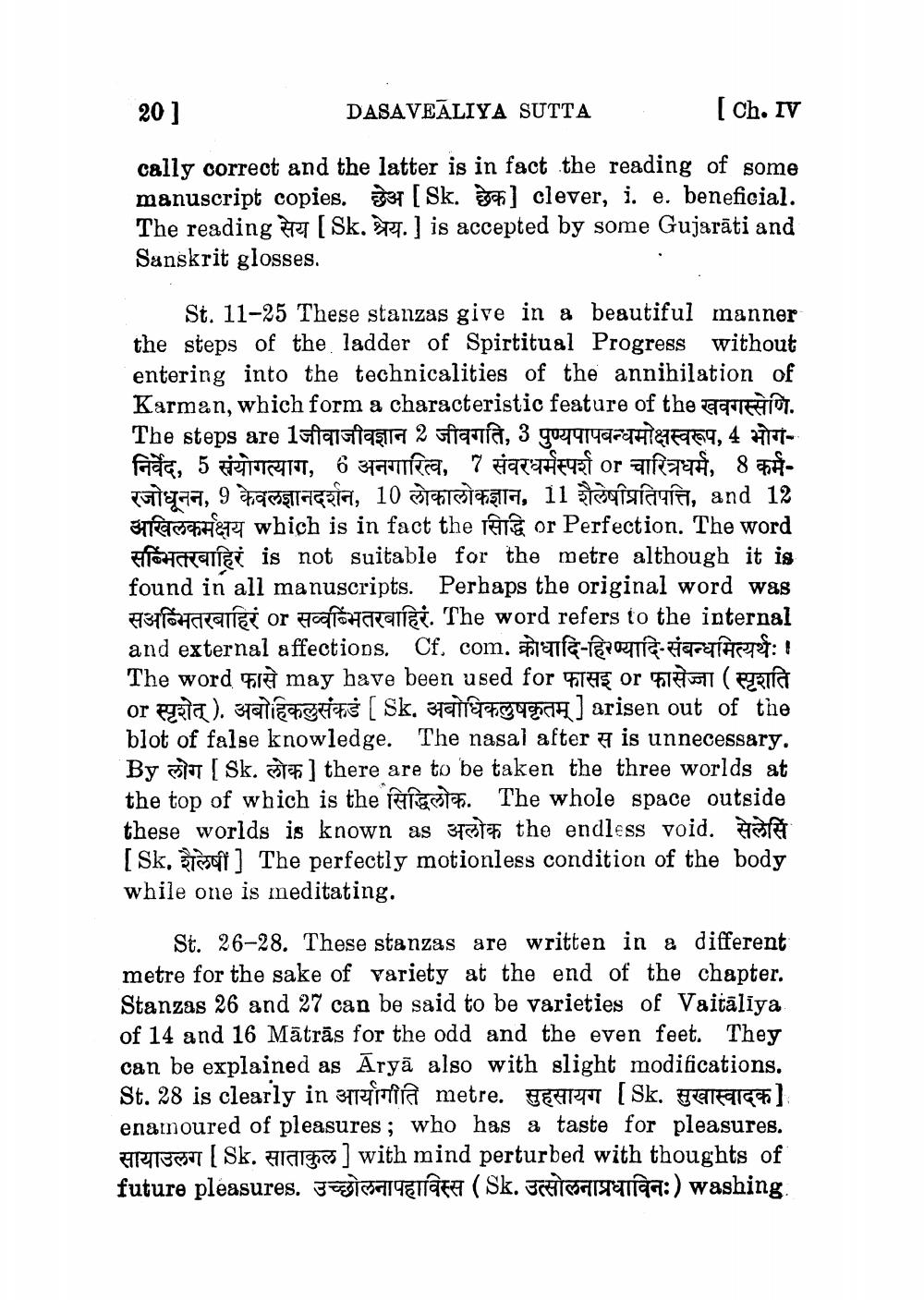________________
20 ]
DASAVEĀLIYA SUTTA
[Ch. IV
cally correct and the latter is in fact the reading of some manuscript copies. 37 [Sk. go] clever, i. e. beneficial. The reading 972 [ Sk. 974.] is accepted by some Gujarāti and Sanskrit glosses.
St. 11-25 These stanzas give in a beautiful manner the steps of the ladder of Spirtitual Progress without entering into the technicalities of the annihilation of Karman, which form a characteristic feature of the ENTRIOT. The steps are 14iqisiasına 2 siquia, 3 go291497THETF 169, 4 artनिर्वेद, 5 संयोगत्याग, 6 अनगारित्व, 7 संवरधर्मस्पर्श or चारित्रधर्म, 8 कर्म
sleef, 9 G465II Gai, 10 © Alltale, 1 đ ĩgia re, and 12 BTC Hepat which is in fact the Tale or Perfection. The word T aigi is not suitable for the metre although it is found in all manuscripts. Perhaps the original word was FB Pharained or washarani. The word refers to the internal and external affections. Cf. com. mee-
route- THETI: 1 The word re may have been used for 195 or 1 ( Feria or Praha). Taliesit ( Sk, 3a1187248014) arisen out of the blot of false knowledge. The nasal after 7 is unnecessary. By go [ Sk. 55107 ) there are to be taken the three worlds at the top of which is the ATEST. The whole space outside these worlds is known as 3731" the endless void. [Sk. 37.501 ] The perfectly motionless condition of the body while one is meditating.
St. 26–28. These stanzas are written in a different metre for the sake of variety at the end of the chapter. Stanzas 26 and 27 can be said to be varieties of Vaitālīya of 14 and 16 Mātrās for the odd and the even feet. They can be explained as Āryā also with slight modifications. St. 28 is clearly in आर्यागीति metre. सुहसायग [ Sk. सुखास्वादक] enamoured of pleasures; who has a taste for pleasures. सायाउलग [ Sk. साताकुल ] with mind perturbed with thoughts of future pleasures. उच्छोलनापहाविस्स (Sk. उत्सोलनाप्रधाविनः) washing




